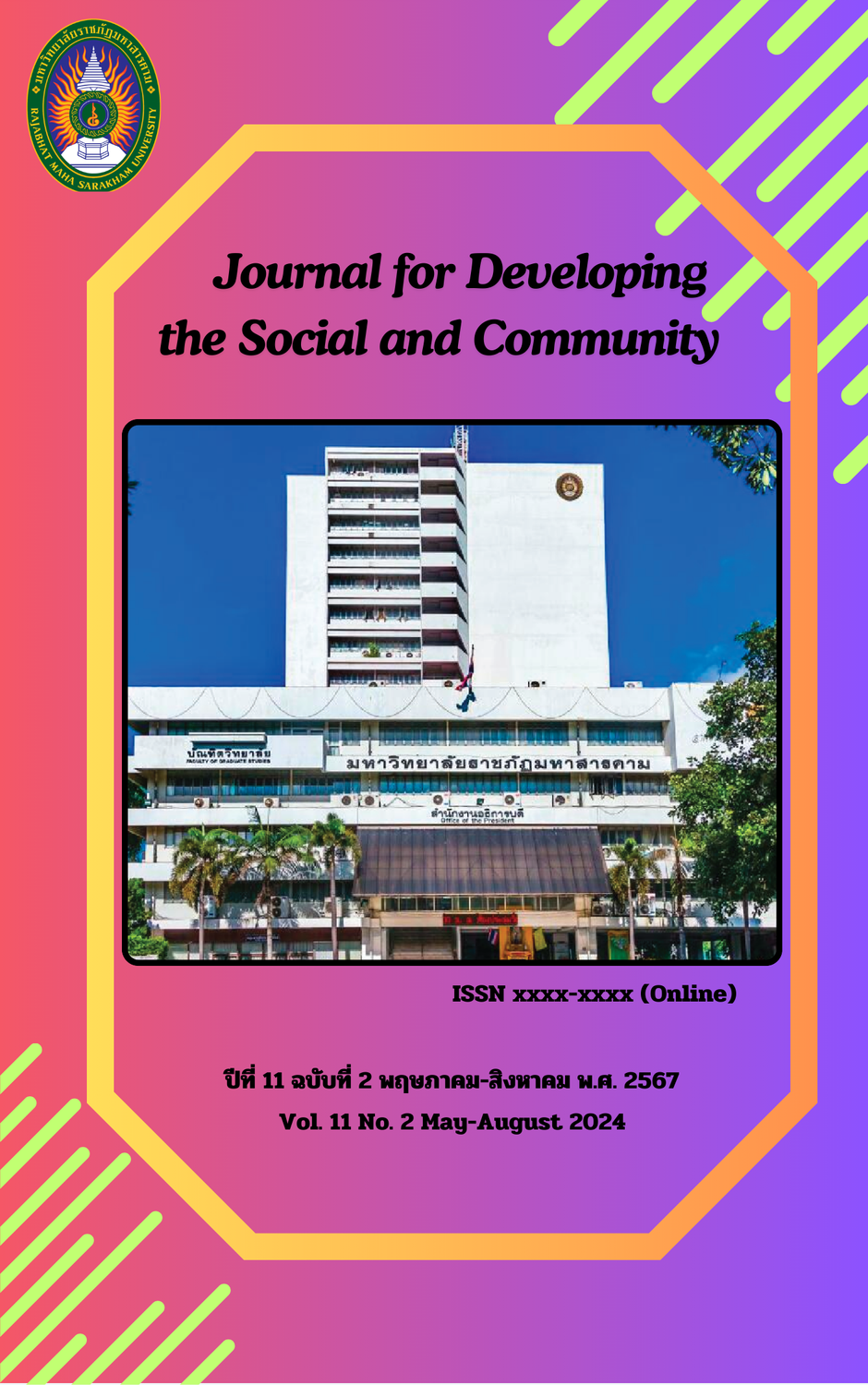CHARACTERISTICS OF THAI HIGHER EDUCATION ADMINISTRATOR UNDER THE DIGITAL TRANSFORMATION ERA
Keywords:
Characteristics of Thai Higher Education Administrator, Higher Education, The Digital Transformation EraAbstract
Higher Education administrators play a crucial and influential role in managing higher education institutions to ensure quality and maximum impact on the quality of education, aligning with the country's policies amidst the changing global societal landscape. Therefore, Higher Education administrators must adapt and redefine their vision to foster their own development and that of educational institutions to keep up with digital age education transformation. This includes the enhancement of pre-existing characteristics, such as 1) Personal attributes, encompassing (1) learning and innovation skills, (2) digital literacy skills, (3) information, media, and technology skills, (4) emotional and social skills, (5) self-directed learning and assessment, (6) effective communication, and (7) good personality traits 2) Leadership qualities, including (1) fostering collaboration and a constructive culture, (2) having vision, strategy, and adaptability, (3) possessing innovative leadership capabilities, (4) inspiring and motivating others, (5) nurturing a positive organizational culture, and (6) social responsibility 3) Managerial knowledge and skills, which consist of (1) managing innovation and technology for efficient educational management, (2) giving importance to health and the environment, (3) preserving arts and culture in line with the modern age, (4) academic and business community service, (5) adopting new budget and financial management practices, (6) innovating in human resource management and development, and (7) global, financial, economic, business, and entrepreneurial knowledge 4) Ethical and moral values, comprising (1) consideration for individuals, respect for rights, citizenship, cultural understanding, (2) responsibility, (3) integrity and honesty, (4) sacrifice and dedication, (5) justice, (6) compassion, kindness, and (7) civic consciousness, which will drive the institution's operations towards quality and a positive image that continues to be acknowledged.
References
Benavides, L., et al. (2020). Digital transformation in higher education institutions: A systematic literature review. Sensors, 20(11), 3291.
Chanjamroon, W. (2022). Analysis of service leadership components of administrators of Rajabhat universities in the northeastern region. Journal of Intellect Education, 1(4), 1-13.
Chaonarin, P. et al. (2022). Management skills in the 21st century of nursing faculty administrators. Affiliated with private higher education institutions in Thailand. The Journal of Research and Academics, 5(1), 113-128.
Chiangkul, W. (2016). Report on the state of Thai education in 2014/2015. Will reform Thai education in time. How can the world in the 21st century? Bangkok : Phimdee Printing Co., Ltd.
Chulangkun, W. (2022). Future vision of the educational quality supervision system of Thai higher education institutions, 2030. Bangkok : Chulalongkorn University.
Faria,J., Nóvoa,H. (2015). Digital transformation at the University of Porto. In Proceedings of the Annual Conference of the Global Innovation and Knowledge Academy, Valencia, Spain, 14–16 July 2015.
Goulart, V.G.; Liboni, L.B.; Cezarino, L.O. (2022). Balancing skills in the digital transformation era: The future of jobs and the role of higher education. Ind. High. Educ., 36, 118–127.
Khianchanaj, T. (2019). Good governance of administrators and administration of private higher education institutions. The Journal of Pacific Institute of Management Science (Humanities and Social Science), 5(1), 197-211.
Ngamsert, S. (2020). Professional higher education administration in the 21st century. Journal Name : Interdisciplinary Studies Journal, 20(1), 2-13.
Noonak, S. & Pawapananakul, C. (2023). Creating service quality of Thai higher education institutions according to the concept STEP-SERVQUAL To enter the ASEAN Community. Report of the Graduate School Conference (Vol. 5, No. 1, pp. 193-201).
Office of the Council of State. (2019). Higher Education Act 2019. Bangkok : Office of the Council of State.
Phakamach, P. et al. (2022). Guidelines for developing adaptive leadership of administrators at Rajamangala University of Technology in Thailand under the situation of the new normal and the next way forward. Journal of Knowledge Exchange, 3(2).
Rucharoenphonpanich, P. & Sa-ngayothin, T. (2018). Leadership innovation of administrators of Thai higher education institutions in the era of Thailand 4.0. Journal of Suvarnabhumi Institute of Technology (Humanities and Social Sciences), 4(2), 124-145.
Sirilak, S. & Wansri, J. (2022). uidelines for managing higher education institutions in the digital age. Journal of MCU Peace studies, 10(3), 1192-1202.
Thamchaichusak, N. & Kamonrungruang, T. (2017). Developing leadership capacity and educational reform of administrators of Thai higher education institutions in the Thailand 4.0 era. ROMPHRUEK JOURNAL, 35(3), 83-99.
Woraphongpat, N. et al. (2021). Characteristics of administrators of higher education institutions that influence the dedication to work of educational personnel in the Thailand 4.0 era. Journal of Graduate Studies Valaya Alongkorn Rajabhat University, 15(1), 53-65.
Zain, S. (2021). Digital transformation trends in education. In Future Directions in Digital Information; Elsevier: Amsterdam, The Netherlands, pp. 223–234.
Downloads
Published
How to Cite
Issue
Section
License
Copyright (c) 2024 Journal for Developing the Social and Community

This work is licensed under a Creative Commons Attribution-NonCommercial-NoDerivatives 4.0 International License.
Articles that are published are copyrighted by the authors of the articles







